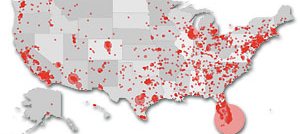WPF urges HHS to do more to protect the privacy of people who are medical research subjects
Common Rule | Health Privacy -- The World Privacy Forum filed extensive comments with the US Department of Health and Human Services about its proposed changes regarding the rules governing human subject medical research. In the comments, WPF noted that the HHS approach to privacy for research subjects was incomplete and did not use all Fair Information Practices. WPF strongly urged HHS to revise its proposal on a number of issues, including consent and the use of biospecimens in research. The World Privacy Forum is urging HHS to acknowledge that the realm of health data that is truly non-identifiable has shrunken remarkably, for example, biospecimens with DNA cannot be considered non-identifiable anymore. "In our comments, we are requesting that HHS give individuals the opportunity to make choices about the use of their own health data and specimens," said Executive director Pam Dixon. WPF also stated in its comments that "A central database with identifiable information about participants in human subjects research is a terrible idea." (See p. 21 of WPF comments.)

